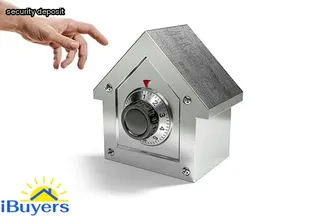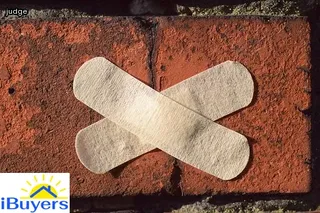In Ohio, landlords are permitted to keep a portion of a tenant's security deposit in order to cover any damages caused by the tenant during their tenancy. However, it is important for landlords to be aware of the rules and regulations that dictate how much they can keep from the security deposit and how it must be returned.
In Ohio, the law requires that all security deposits must be returned within 30 days of the tenant’s vacating the premises. Landlords are required to provide an itemized list of deductions made from the security deposit and any remaining funds must be sent to the tenant’s last known address or deposited in an escrow account.
If a landlord fails to return a security deposit within 30 days or fails to provide an adequate explanation as to why they have withheld part or all of it, then they may face fines and other penalties. Therefore, it is vital for Ohio landlords to understand their rights when it comes to returning security deposits.

As an Ohio landlord, it's important to take steps to prevent unnecessary disputes over security deposits. One of the best ways to do this is by implementing a thorough move-in inspection process that includes detailed descriptions of the property condition in writing and photographs.
Landlords can also include language about tenant responsibility for damage caused by negligence in their lease agreement. Additionally, having a well-defined policy for when and how security deposits can be withheld from tenants is important for avoiding misunderstandings at the end of a tenancy.
Finally, landlords should ensure they are following all local laws related to security deposit collection and maximum amounts that can be charged. By proactively addressing these issues up front, landlords can reduce the chances of costly legal disputes down the line if damages occur during a tenancy.
When it comes to Ohio landlords, one of the most important policies is to establish rules for dealing with late rent payments. Landlords should be aware of their rights and responsibilities when it comes to collecting overdue rent.
It's a good idea to create a written policy that outlines the consequences of late payments and the steps that will be taken if rents are not paid on time. This policy should include information about the amount of time tenants have to pay past due rent before any action is taken, as well as specific amounts for late fees or other charges if applicable.
It's also important to communicate these expectations clearly with tenants prior to signing a lease agreement so everyone is on the same page. By establishing clear policies regarding late rental payments, Ohio landlords can protect themselves from potential tenant-caused property damage while still allowing tenants sufficient time to meet their obligations.

Returning security deposits to tenants is a great way for Ohio landlords to avoid potential costly disputes. It can also provide peace of mind and satisfaction to both parties involved.
When landlords return security deposits, they are essentially showing their tenants that they are willing to trust the tenant and take them at their word that they have not caused any damage to the rental property. This gesture can go a long way toward building positive relationships with tenants and encouraging them to stay in the rental unit for longer periods of time.
Additionally, returning security deposits quickly after a tenant vacates the unit is an excellent way for landlords to demonstrate their commitment to treating tenants fairly and ethically, which can help bolster their reputation in the community. Furthermore, depending on state law, it may be easier for landlords to deduct damages from a security deposit than it is for them to pursue compensation through other means such as legal action or small claims court.
In this case, returning a tenant’s security deposit shows that the landlord was willing to take the high road rather than looking for problems or trying to take advantage of the tenant.
When conducting an inspection of a rental unit, Ohio landlords have the right to examine the condition of the property. It is important for landlords to thoroughly inspect the unit before and after a tenant moves in or out and document any existing damage.
If a tenant has caused property damage during their tenancy, it is essential that landlords take photographs of the affected areas and include them as part of their documentation. Landlords should also keep copies of any repair invoices related to damages caused by tenants.
Additionally, when inspecting the rental unit, Ohio landlords should check for any unauthorized changes that tenants may have made such as painting over walls or installing fixtures without permission. By doing this, they can ensure they are able to seek compensation from tenants if necessary.

When seeking compensation from a tenant for property damage it is important to create an itemized statement of deductions. This should include a detailed list of the cost of repairs, an explanation of the reason for the deduction, and supporting evidence such as photographs or receipts.
Landlords must carefully document all costs related to the damage, including materials and labor, in order to ensure that they receive full compensation for the repairs. Furthermore, if any replacement items were necessary due to the damage, those costs should also be included.
Landlords should also keep records of any communication between themselves and their tenants regarding the damage, so that they can prove that they notified their tenants about potential deductions in a timely manner. All these steps are essential to ensuring successful reimbursement from tenant-caused property damage by Ohio landlords.
Before tenants move in, landlords should create a detailed property inventory report that outlines the condition of their rental unit and its contents. This document should include an accurate description of all furniture, appliances, flooring and walls.
Additionally, it should note any existing damage or wear-and-tear that was present before the tenant moved in. To ensure accuracy, landlords may want to include photos or videos to supplement the written report.
Furthermore, they may also want to make copies of the report for both themselves and their tenants so everyone agrees on the pre-existing damages. With these documents in hand, Ohio landlords can have better peace of mind when seeking compensation from tenants who cause property damage during their tenure.

Documenting the damage that tenants have caused to property in Ohio is an important step for landlords when seeking compensation. Landlords can protect their rights and claim damages by taking photographs of the property before and after a tenant moves in or out, keeping receipts of repairs made to the property, and maintaining detailed records of tenant payments.
They should also document any communication between themselves and their tenants about the condition of the property. Finally, having a written rental agreement with each tenant detailing specific expectations and responsibilities may help landlords prove that damage was caused by a tenant and not pre-existing conditions.
Understanding how to properly document tenant damage is essential for Ohio landlords who wish to seek compensation from their tenants.
When a tenant’s security deposit does not cover the damage and unpaid rent caused during their lease, Ohio landlords have several options for seeking compensation. Seeking legal action is always an option, but there are other strategies that may be employed to recover costs.
Landlords can pursue alternative methods of payment from the tenant such as requesting they pay with cash or money order rather than check or credit card. If the tenant has not paid the security deposit in full at the beginning of their lease, landlords can withhold rent payments until the full amount is paid.
In addition, when tenants move out, landlords may inspect the property and provide a detailed list of damages to which they will seek payment. Finally, if the tenant has left personal property behind after vacating the premises, landlords should consider charging storage fees until it is retrieved or sold to cover any losses.

In Ohio, landlords have the right to seek legal recourse for any illegal alterations or damages caused by tenants. Landlords should investigate the situation and understand their rights and obligations under Ohio law when a tenant causes property damage.
It is important that landlords document all damages and provide proof that the tenant was responsible. This can be done through photographs of the damage and having witnesses testify to the tenant's actions.
For minor damages, it may be beneficial to withhold part of the security deposit in order to cover repair costs. In more serious cases, landlords may need to pursue legal action in order to recover compensation for lost rent or repair costs.
Furthermore, if appropriate, landlords can pursue criminal charges against tenants who commit vandalism or other illegal activities. By understanding their rights under Ohio law and proactively documenting any damages caused by tenants, landlords can obtain compensation for property damage.
As an Ohio landlord, it's important to protect yourself from potential liability by drafting well-written lease agreements. Your lease agreement should include a clause that outlines the tenant's responsibility in the event of property damage.
This may include agreeing to pay for repairs or replacement costs within a certain timeframe. You should also be sure to clearly state which areas of the rental property are off limits and list any rules or regulations related to living on your property.
Make sure that all tenants sign and date the agreement so that everyone is held accountable if something goes wrong. Additionally, you should consider adding a clause where tenants agree to pay for any damages that occur beyond what is considered normal wear and tear at the end of their tenancy.
This will help ensure that you are able to seek compensation for any tenant-caused property damage.

Most Ohio landlords are aware of the financial consequences they can face if they wrongfully withhold a tenant's security deposit. In some cases, a tenant may be entitled to up to three times their original deposit amount in compensation.
It is important for landlords to understand that withholding a security deposit without legal justification can have serious financial repercussions. Landlords should also be aware that in addition to a potential lawsuit, tenants may seek compensation for any property damage caused by them during the tenancy period.
This is especially true if the landlord failed to properly document the condition of the rental unit prior to occupancy. In this situation, it is important for landlords to take prompt action in order to protect themselves financially and seek out an appropriate resolution with the tenant who caused the damage.
As a landlord in Ohio, it is important to understand your legal rights and responsibilities. In the event of tenant-caused property damage, you may be able to seek compensation from the tenant.
Ohio law requires landlords to provide tenants with a secure living environment and all necessary repairs must be made in a timely manner. As a landlord, you are obligated to provide written notice of any property damage caused by the tenant and they must be given an opportunity to repair it within a certain period of time.
It is also important to keep records of all repair costs as well as any communication with the tenant regarding the issue. Additionally, if the damages are not repaired within the specified period of time, you can take legal action against the tenant for repayment of costs or initiate eviction proceedings if necessary.
As a landlord in Ohio, understanding your rights and responsibilities will help ensure that you are fully compensated for any damage caused by your tenants.

It is a common misconception that security deposits are the only way for Ohio landlords to seek compensation for tenant-caused property damage. While security deposits may cover some of the cost, there are other options available.
Landlords can collect damages from tenants in a variety of ways, including collecting rent payments until the full amount of repairs has been covered, deducting money from a tenant's security deposit and/or charging tenants through their rental agreements. It is important for landlords to be aware of all the options they have in order to properly seek compensation for any damages caused by tenants.
Additionally, it is essential to understand Ohio state laws regarding tenant-caused property damage in order to ensure that all processes are compliant with legal regulations. Knowing these legal requirements and understanding all the methods available to seek compensation can help Ohio landlords protect their investments and receive due payments from tenants who have caused property damage.
When it comes to returning a security deposit after a tenancy ends, Ohio landlords should follow best practices in order to ensure proper compensation for property damage caused by the tenant. To start, landlords should make sure they are following all local ordinances and state laws regarding the handling of security deposits.
This includes providing a written receipt upon collection of the security deposit, accounting for any deductions from the security deposit, and furnishing the tenant with an itemized list of those deductions. Ohio landlords must also provide tenants with written notice prior to making any deductions from their security deposit and have proof that the damages were caused by the tenant in order for them to be able to seek reimbursement.
Landlords should also be aware that most states have specific time frames within which they must return the remaining balance of a tenant’s security deposit or explain why any portion was withheld. Finally, Ohio landlords should document all repairs or improvements made to their rental property as well as keep track of dates when tenants move in and out so they can easily refer back to this information if needed.
Following these steps will help Ohio landlords protect their interests and receive full financial compensation when a tenant has caused damage to their rental property.

When a tenant damages their rental property, Ohio landlords can seek compensation for the damage by engaging in arbitration. Arbitration is an alternative dispute resolution method that allows landlords and tenants to settle disputes outside of court.
It is typically less costly, faster, and more informal than traditional litigation. During arbitration, both parties present evidence to a neutral arbitrator who then decides on an outcome.
The landlord and tenant must agree to abide by the arbitrator’s decision or proceed with further legal action. In the case of security deposit disputes, the arbitrator will review any relevant documentation such as receipts for repairs or photographs of damaged property to determine what portion of the deposit should be returned to the tenant and if any additional monies are owed by either party.
Depending on the state statute, this process may also include mediation in which a mediator helps both parties reach a mutually satisfactory agreement without involving an arbitrator. To ensure fairness throughout the process, it is important for landlords to understand their rights and obligations when filing a claim against a tenant in Ohio.
When it comes to preparing a move-out letter for an Ohio landlord, there are certain steps that should be taken in order to ensure that the tenant is held accountable for any property damage they may have caused during their tenancy. The first step is to identify any damage that has been done and document it with photographs or videos.
This will serve as evidence when filing a claim against the tenant. It’s also important to include all relevant information such as the date of move-out, contact information for both parties, and a detailed summary of the damages.
Additionally, make sure you outline the amount of compensation being requested from the tenant and provide copies of repair estimates or bills incurred due to repairs needed. Finally, make sure to review the terms outlined in your lease agreement so that you can determine what is and isn’t covered by the tenant regarding property damage before sending out your move-out letter.

As a landlord in Ohio, it is important to understand your rights and responsibilities when it comes to tenant-caused property damage. If a tenant decides to take you to court over the security deposit, it is important to prepare yourself for the legal process ahead.
First and foremost, familiarize yourself with all applicable state laws. Research any applicable defense that you may have against the tenant's claims.
In addition, collect any pertinent evidence or documentation such as contracts and photographs of the property that can help support your case. Additionally, consider hiring an experienced lawyer who will be able to help guide you through the legal process and provide advice on how best to defend yourself in court.
The key is to be prepared by understanding your rights and responsibilities, gathering evidence, and having a strategy for defending yourself in court if necessary.
If you are an Ohio landlord who has experienced property damage caused by a tenant and are seeking compensation, one of the first steps is to find a qualified and reputable landlord-tenant attorney. It is important to research local attorneys in your area and read reviews from past clients to ensure they have the experience necessary to handle your case.
Additionally, many states offer free or low-cost services for legal advice, which may be useful if you're on a tight budget. You should also consider consulting with any landlord associations in your area as they can provide referrals and other resources related to landlord-tenant law.
Once you have identified potential attorneys that meet your criteria, be sure to ask them questions about their experience, fees, and any other relevant topics before making a final decision. Finally, be sure to document all communication throughout the process in order to protect yourself legally should the need arise.
In Ohio, landlords have the right to pursue legal action against tenants who have caused property damage. If a landlord and tenant cannot come to an agreement about damage repair costs, a lawsuit can be filed in small claims court.
The landlord must determine if the damages are covered by the tenant’s security deposit or if additional money is owed. If there is no security deposit, or not enough to cover the total cost of repairs, the landlord can sue for the remaining balance.
To begin a lawsuit against a tenant in Ohio, a landlord must first file a complaint with the court system. The complaint should include all evidence that documents the amount of damages caused by the tenant and any attempts to collect payment from them before filing suit.
Once filed, the court will set a hearing date where both parties can present their case and evidence. If found responsible for damages, tenants may be liable for financial compensation plus court fees and attorney costs incurred by their landlord.
It is important for landlords to understand their rights when it comes to seeking compensation for tenant-caused property damage in Ohio in order to protect themselves financially and legally.

When it comes to seeking compensation for tenant-caused property damage, Ohio landlords should be aware of their rights and the limitations set by their local laws. Maximum charges for damages vary based on city and county regulations, but in general a landlord may not charge more than two times the monthly rent or $500 per occurrence, whichever is greater.
For example, if a tenant caused $1,000 worth of damage and their rent was $800 per month, the landlord could not charge more than $1,600 for repairs. Landlords should also keep in mind that any fees charged must be reasonable and necessary to cover the cost of repairs.
In addition, it is important to note that tenants cannot be held liable for normal wear and tear associated with everyday use.
In Ohio, landlords have six years to sue for damages caused by a tenant. This is outlined in the Ohio Revised Code, Section 2305.
06 which states that a landlord has six years from the time of the breach of contract or damage to file suit against a tenant. During this period, the landlord must prove that the damages were caused by the tenant and not due to normal wear and tear.
Landlords should also be aware of their local laws as some cities may have their own set of rules for filing suit against tenants for property damage. It is important for landlords to document all property damages caused by tenants and keep thorough records should they decide to seek compensation in the future.
This will help make sure that they have all of the evidence necessary if they choose to pursue legal action at a later date.
In Ohio, landlords are prohibited from taking any retaliatory action against tenants for seeking compensation for tenant caused property damage. A landlord cannot evict a tenant, raise their rent, or cut off essential services such as heat or water.
Landlords also cannot use any self-help measures to remove a tenant without a court order. Additionally, they are not allowed to harass or threaten tenants in an effort to get them to leave the premises before their lease is up.
Finally, landlords in Ohio cannot refuse to return a security deposit if the tenant has fulfilled all the terms of the lease agreement.